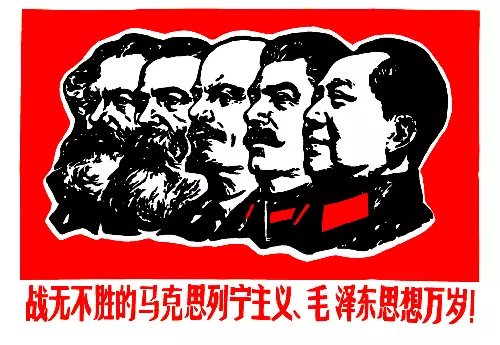this post was submitted on 07 Dec 2023
27 points (90.9% liked)
Communism
9647 readers
1 users here now
Discussion Community for fellow Marxist-Leninists and other Marxists.
Rules for /c/communism
Rules that visitors must follow to participate. May be used as reasons to report or ban.
- No non-marxists
This subreddit is here to facilitate discussion between marxists.
There are other communities aimed at helping along new communists. This community isn't here to convert naysayers to marxism.
If you are a member of the police, armed forces, or any other part of the repressive state apparatus of capitalist nations, you will be banned.
- No oppressive language
Do not attempt to justify your use of oppressive language.
Doing this will almost assuredly result in a ban. Accept the criticism in a principled manner, edit your post or comment accordingly, and move on, learning from your mistake.
We believe that speech, like everything else, has a class character, and that some speech can be oppressive. This is why speech that is patriarchal, white supremacist, cissupremacist, homophobic, ableist, or otherwise oppressive is banned.
TERF is not a slur.
- No low quality or off-topic posts
Posts that are low-effort or otherwise irrelevant will be removed.
This is not a place to engage in meta-drama or discuss random reactionaries on lemmy or anywhere else.
This includes memes and circlejerking.
This includes most images, such as random books or memorabilia you found.
We ask that amerikan posters refrain from posting about US bourgeois politics. The rest of the world really doesn’t care that much.
- No basic questions about marxism
Posts asking entry-level questions will be removed.
Questions like “What is Maoism?” or “Why do Stalinists believe what they do?” will be removed, as they are not the focus on this forum.
- No sectarianism
Marxists of all tendencies are welcome here.
Refrain from sectarianism, defined here as unprincipled criticism. Posts trash-talking a certain tendency or marxist figure will be removed. Circlejerking, throwing insults around, and other pettiness is unacceptable.
If criticisms must be made, make them in a principled manner, applying Marxist analysis.
The goal of this subreddit is the accretion of theory and knowledge and the promotion of quality discussion and criticism.
Check out ProleWiki for a communist wikipedia.
Communism study guide

founded 5 years ago
MODERATORS
 listen to 679 by Fetty Wap while looking at this image pls
listen to 679 by Fetty Wap while looking at this image pls